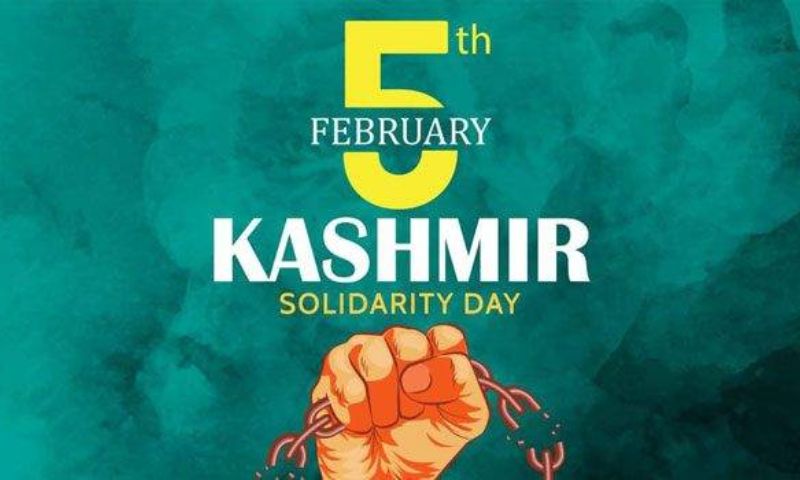SRINAGAR: The Indian Illegally Occupied Jammu and Kashmir (IIOJK) region was marked by heightened tension and heavy security on August 5, as Kashmiris observed Youm-e-Istehsal as Black Day to protest Indian forces’ brutalities and oppressive measures.
Youm-e-Istehsal commemorates the illegal revocation of Article 370, on August 5, 2019, stripping the occupied region of special autonomous status, a move that has been widely condemned by local and international observers.
Indian authorities imposed strict measures throughout occupied Jammu and Kashmir. A significant increase in military presence, along with numerous checkpoints, was reported. Prominent political figures, including senior All Parties Hurriyat Conference (APHC) leader Agha Syed Hassan Al-Moosvi Al-Safvi and former Jammu and Kashmir Chief Minister Mehbooba Mufti, were placed under house arrest to prevent them from participating in or leading protests.
In a display of solidarity with the Kashmiri people, Kashmiri-Americans organized a protest at New York’s Times Square. The demonstrators condemned India’s human rights abuses in IIOJK and called for the implementation of the United Nations-pledged right to self-determination for the Kashmiri people.
Protesters chanted slogans such as “Modi Guilty of Crimes Against Humanity in Kashmir” and “Kashmiris Reject Indian Occupation: UN Resolutions Only Solution,” underscoring their demands for international intervention and justice.
A report by the Research Section of Kashmir Media Service highlighted a grim reality since the abrogation of Article 370 on August 5, 2019. The report reveals a troubling increase in human rights violations, with 907 Kashmiris reportedly martyred, including 17 women and 30 young boys. The report further emphasizes the ongoing detainment of prominent Hurriyat leaders and activists in Indian jails and the severe restrictions on press freedom within the region.
The report also criticizes India’s policies aimed at altering the demographic composition of the region. It notes the distribution of domicile certificates to non-Kashmiris and the confiscation of properties belonging to pro-freedom leaders and activists as attempts to undermine the Muslim-majority status of IIOJK.























